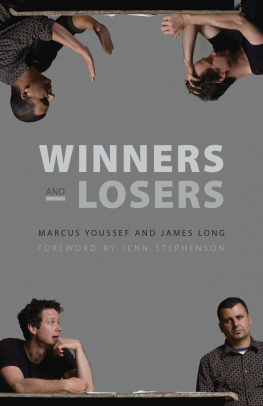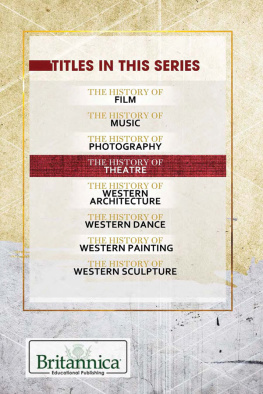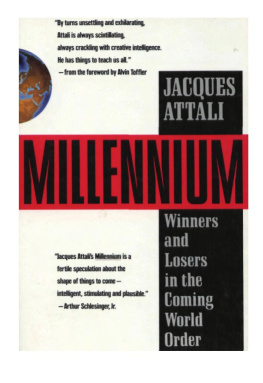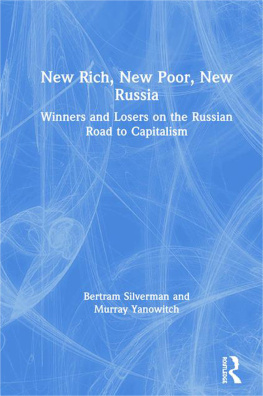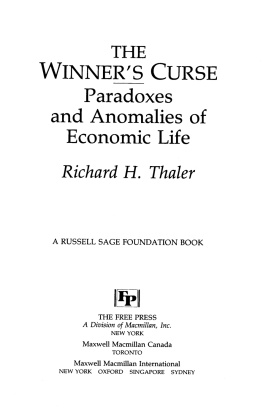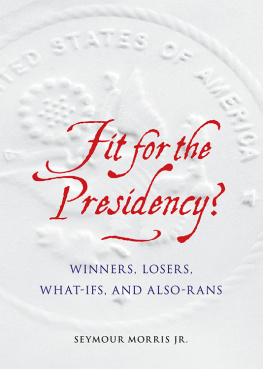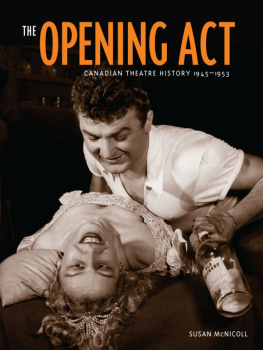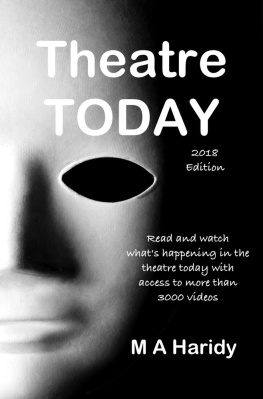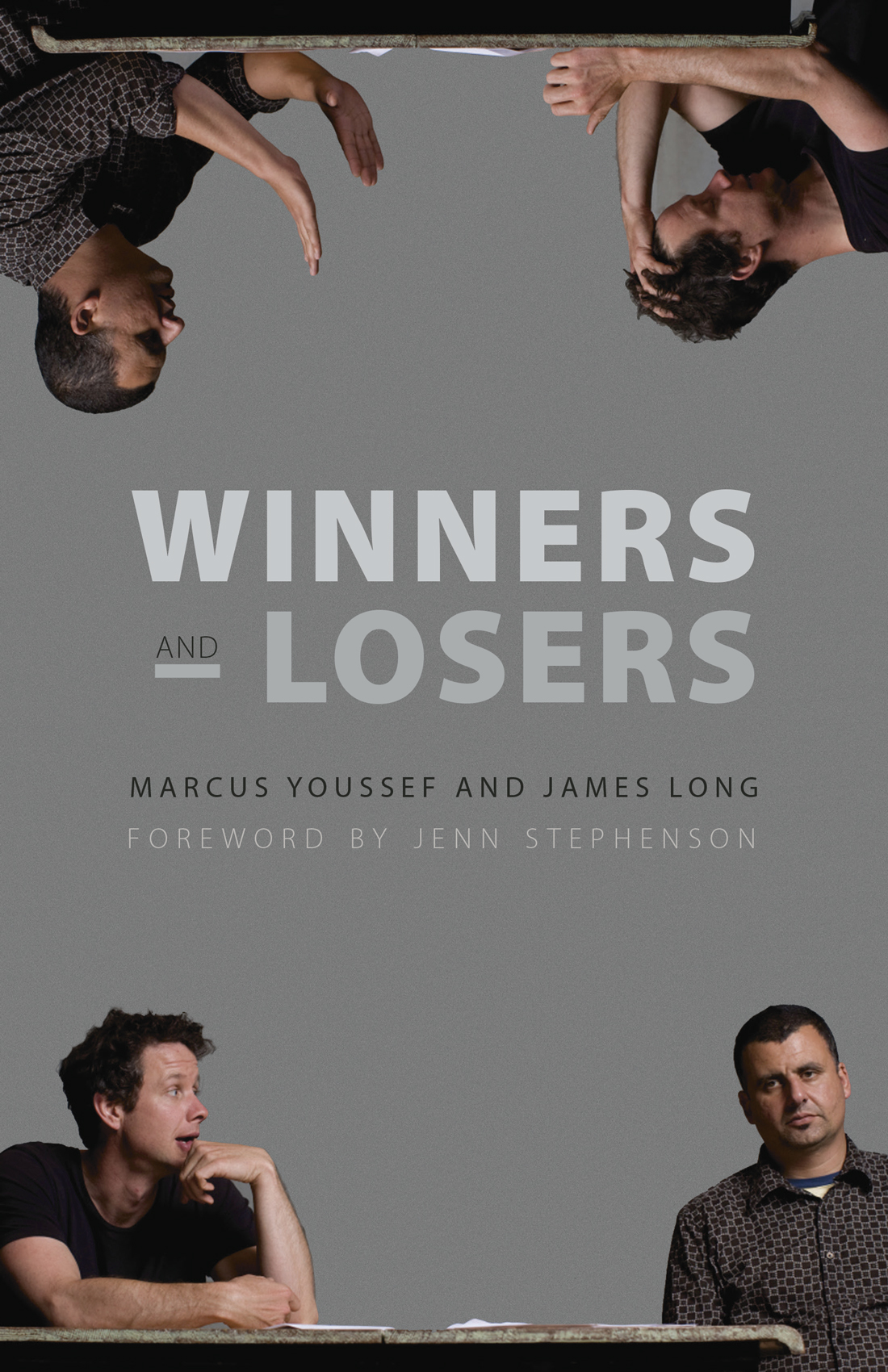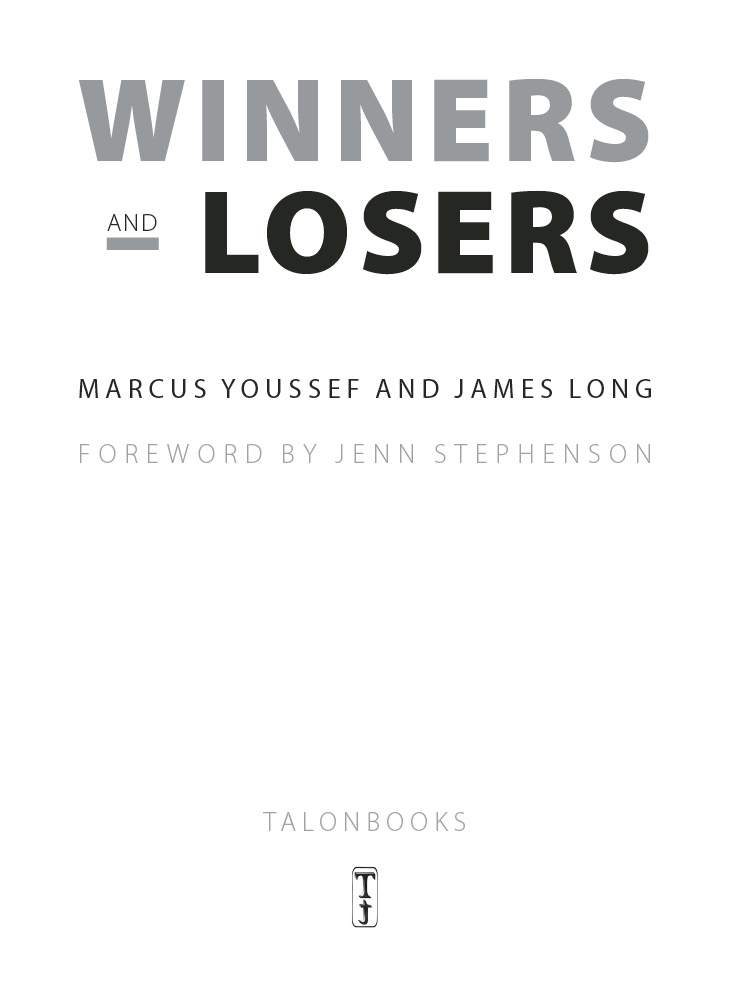CONTENTS For our families EMBRACING UNCERTAINTY: A USER'S GUIDE by Jenn Stephenson Heres what Ottawa theatre blogger Kevin Reid has to say about Winners and Losers : And this is where it gets absolutely fascinating and deliciously uncomfortable. This piece blurs the line between the theatrical and the real like nothing Ive ever seen, and while Im sure the actors are, in fact, just acting (mostly... I think...) it nevertheless feels bloody real, to the point where when its all over you feel almost garish for applauding. An experiment in realism that isnt afraid to punch traditional stage boundaries right in the dick... this play wont be everyones cup of tea, but if it doesnt get you thinking and talking like you might be the Scarecrow in Wizard of Oz . Huge props to the actors, and Id love to compare notes with people who saw it on different nights.
This is theatre at its most real... and, therefore, at its scariest. In his vivid response to the work, Reid captures the potent audience experience on offer, a kind of thrilled but hesitant fear that characterizes the central affective paradox of Winners a nd Losers . After the two performers introduce themselves Hi. My name is Jamie and this is Marcus. Hi.
Im Marcus we are initiated into the basic premise of the event; here we are just casually hanging out with these two friends as they play a witty game they have invented called Winners and Losers. As various topics are proposed for debate microwave ovens, the Occupy movement, Stonehenge the two perfunctorily dispense judgment. Grounded in a tough attitude of Enlightenment libertarianism, their assessment of what constitutes a winner turns primarily on whether or not the person or issue presented is autonomous, self-directed, and capable of having significant impact on his, her, or its social or environmental context. In combination with our philosophical discomfort with this thinking, our amusement is grounded in the disrespectful brevity and aggressive confidence of their conclusions, treating high and low subjects to the same brisk capitalist reduction. We laugh along at the absurdity of the game. Eventually, however, Jamie and Marcus raise the stakes and the play turns nasty when the two decide to insert themselves as the subjects to be judged.
Between the two long-time friends, the knives of honesty come out and this game is suddenly a lot less fun both for us and for them. Presented as essentially an improvised, spontaneous event, hosted by Jamie and Marcus as themselves, Winners and Losers situates itself solidly in the early twenty-first century zeitgeist in Canada for reality-based theatre. (Although we can trace the roots of this phenomenon to the early 1990s in Europe and the United Kingdom, it is only in the past decade or so that it has flourished in Canada.) Reality-based theatre, or Theatre of the Real as it is also known, is an umbrella term encompassing a variety of performance strategies and styles where the principal aim is to establish connections to the lived real. It is a mode of performance characterized by: an interest in extending public understanding of contemporary individuals and society; a focus on representing and or putting living people on the stage; and an aesthetics of authenticity effects, artistic strategies designed to generate (and then in some cases, destabilize) an impression of close contact with social reality and real people. Winners and Losers connects to this tradition initially as a work of autobiography its subject-protagonists are Jamie and Marcus as performed by their actual-world counterparts Long and Youssef but it also manifests an attachment to this ethos through its concerted and strategic efforts to erase the theatrical frame and present something real. Beyond confessions of real-world personal details, Jamie and Marcus do real stuff.
They roll on the floor and try to beat the crap out of each other. They drink beer. They play Ping-Pong. As we witness the crazy impossibility of scripting the movement of a Ping-Pong ball, its realness bubbles up. We feel an electric frisson at being in the presence of a really real thing. This is one way that Winners and Losers taps into the potent audience experience of reality-based performance.
The other way that the real is made manifest is through deliberate exposure of the usual theatrical artifice. Winners and Losers continually reminds us that we are in a theatre and this is indeed a play. To begin the show, Jamie presses Stop on an iPod, stopping the pre-show music. Jamie and Marcus talk to the audience. They talk to the stage manager. They explicitly acknowledge that they are in the process of creating a show: Isnt that a rule? One of us does it, then the other? I thought we were just making it up.
Yeah, we are. So lets make it up. As promised, parts of the play are indeed improvised within certain parameters. Yet, frequently, the seemingly most unpremeditated moments are those that are the most carefully placed, permanently mapped in the otherwise changing terrain of the script. As evidenced by the publication of the text in this book, this is very much a crafted work of theatrical art in the style of the Theatre of the Real genre. The script you hold is not transparently the recording of a past, improvised event.
Rather, the provocatively self-imploding consequence of publication is the exposure of the mechanism of the real, a peeling back of the curtain to out the various authenticity effects as just that, effects born from consciously applied techniques. This interplay between the real and the constructed generates the conditions for the thrilled but fearful audiencing experience of Theatre of the Real in general and Winners and Losers in particular. In our discomfort, we apprehend the stakes differently because we have been encouraged through the accumulation of authenticity effects to connect their stinging mutual accusations to real Marcus and real Jamie. It really is quite upsetting and yet, in reflection, this is hardly the worst thing I have ever seen on stage in terms of the emotional evisceration of another (albeit fictional) human being. But more than straightforward concern for the real-world psychological well-being of our protagonists damaged by truths revealed, the audience is profoundly disoriented by doubt concerning what still remains hidden. Taking up this problem of what we cannot see, David Shields in his 2010 manifesto Reality Hunger identifies an innate paradoxical indeterminacy of non-fiction.
What is productive uncertainty doing here in Winners and Losers ? Fostered by the audiences epistemological disorientation, the lesson is perhaps to embrace doubt as a moral position, taking our cognitive experience of the play as its theme. Considering the play from this perspective, reframed by the experience of productive uncertainty and coloured by our shamefaced fear (we should know better but we cant help it), the question is not: Are you a winner or a loser? But rather the play begs the question. The hyperconfident black-and-white assessments of Jamie and Marcus cannot stand. Perhaps we cannot (and should not) assess the world on those terms when thinking about having an impact either through parenting (Jamie) or through public service (Marcus) or through the creation of theatre (both). These are projects combining high emotional investment with unpredictably slow outcomes. In the short term, in the space of a snap judgment, there is no way to really know if all your work made any difference at all.
Winner or loser becomes impossible to declare. We might have no choice but to be scared and to live with the uncertainty. Notes

